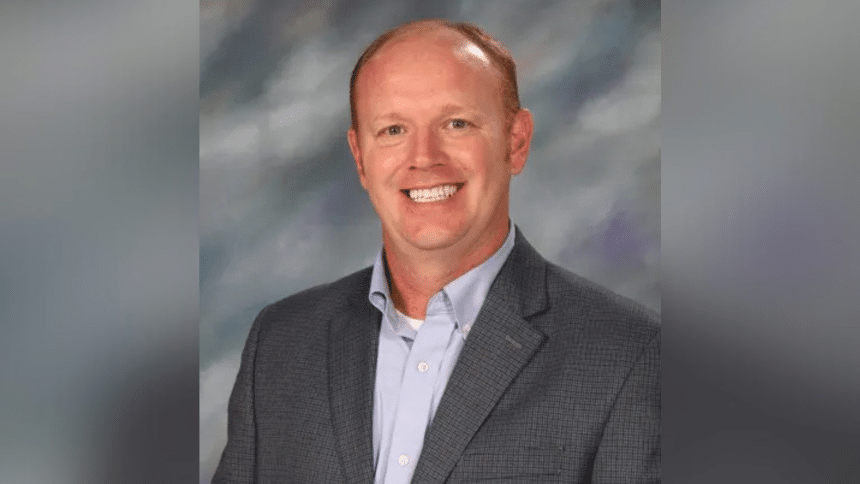As Mississippi’s public education system experiences its most impressive gains in decades, we must ask an important question: Why now? Why introduce a policy that would destabilize a system that is clearly working?
Over the past decade, Mississippi has seen remarkable growth, with 87% of districts now earning a C or higher, according to the Mississippi Department of Education. Notably, eight of the 19 districts rated D, F, or not rated at all are charter schools. Our state’s national ranking for K–12 achievement has climbed from 50th to 16th, and Mississippi now leads the nation in early literacy gains and fourth-grade reading growth. These results were not achieved through privatization or vouchers—they were achieved through focus, consistency, and intentionality by teachers and administrator across our state.
When a system is continuously improving, research is clear—now is not the time to blow it up. It is the time to double down on what works. The path forward for Mississippi lies in refining and strengthening our current educational system, not abandoning it for one that lacks accountability or proven results.
Accountability should apply to everyone
Public schools in Mississippi operate under one of the most transparent and rigorous accountability systems in the nation. Every school and district receives an annual letter grade—A through F—based on clear, publicly reported indicators such as student achievement, academic growth, graduation rates, and college and career readiness. Those results are not hidden in a report or spreadsheet—they are published statewide each year, tied directly to state and federal funding decisions, and used to guide support and improvement efforts.
When schools fall short, the state steps in. The Mississippi Department of Education provides targeted assistance, professional development, and intervention strategies to help struggling schools improve. Local school boards are required to discuss results in open meetings, and the public has full access to performance data by school, grade, and subgroup. In short, the public knows exactly how their schools are performing and can hold leaders—like me—accountable for results.
Private schools receiving taxpayer-funded vouchers, however, face none of these same expectations. They are not required to administer state assessments aligned with Mississippi’s academic standards, report graduation rates, publish any data showing whether students are actually learning, or required to have certified teachers. There are no annual report cards, no performance frameworks, and no transparency measures that allow parents or taxpayers to see results.
That lack of oversight raises a serious question: if public money is funding private education, how are families—or lawmakers—supposed to know whether “school choice” is actually working? Without data, there is no way to compare outcomes or determine whether students receiving vouchers are gaining ground, standing still, or falling behind.
If public dollars are going to private institutions, the public deserves to know what they’re getting in return. Accountability should not stop at the schoolhouse door simply because the sign out front doesn’t say “public.”
Transparency is not a punishment—it’s a promise. It’s the reason Mississippi’s public education system has achieved record gains in the last decade. We turned years of stagnation into a story of improvement precisely because we were willing to measure results, confront reality, and act on what the data showed. If accountability has helped strengthen our public schools, shouldn’t it be expected of any school that receives public funds?
The cost of disruption
Universal school choice would drain critical resources from public schools—the very institutions that anchor our communities. When public dollars follow students out the door, the schools left behind still carry the same responsibilities: teaching every child who walks through their doors, keeping class sizes manageable, and providing programs in the arts, athletics, and career-technical education. What disappears are the resources to sustain that work.
Unlike public schools, private schools that receive vouchers are not required to serve all children. They can—and often do—set admissions criteria that exclude students with disabilities, English language learners, or those with behavioral or academic challenges. They may decline to provide transportation, limit access for low-income families, or charge additional fees beyond the voucher amount. That’s not freedom or fairness; that’s selective access.
Public schools, by contrast, open their doors to every child, every day. They are the great equalizer—places where opportunity is not limited by income, background, or ability. Public schools don’t get to choose their students. They simply choose to serve them all.
In every community, the public school is more than a building—it’s a gathering place, a unifying symbol, and a promise that every child deserves a fair start. To weaken that promise by diverting funds to institutions that operate without the same responsibility or transparency is to risk unraveling one of the most essential threads in the fabric of our state.
Education is a public good
At its core, education is a public good, not a consumer good. It exists not to serve individual preference but to ensure the collective well-being of our communities and the strength of our democracy. Public education thrives on shared responsibility, transparency, and inclusion—values that cannot be reduced to marketplace competition or transactional choice.
When we begin to treat education as a commodity to be bought and sold, we risk eroding the foundation of equal opportunity and civic unity that has anchored this nation for more than a century. Public schools are where our children learn not only academics, but empathy, cooperation, and the responsibilities of citizenship.
A better path forward
Mississippi’s recent success story proves what’s possible when we invest in what works—early literacy, teacher development, career pathways, and continuous improvement. Rather than expanding programs that siphon resources away from public schools, we should continue building on the practices that have moved Mississippi from the bottom of national rankings to one of the most improved states in the country.
The future of Mississippi’s children depends on the decisions we make today. If we want every child, in every community, to have a fair shot at success, we must protect and strengthen our public schools. Let’s continue to refine what’s working instead of dismantling a system that is finally moving in the right direction.
Education is not a marketplace—it’s a promise. And that promise belongs to every child in Mississippi.








